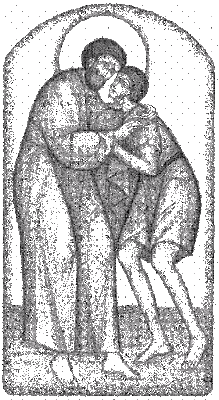XXIX SUNDAY IN ORDINARY TIME - 2 Timothy 3:14-4:2
Traditionally, this Sunday is the WORLD MISSION DAY, which is the high point of the October month, dedicated by Pope Francis to reflect on God’s call to announce the Good News of salvation. in which we are called to reflect upon Christ’s call to be his witnesses to the ends of the earth. The Pope called for this special month to commemorate the centenary of the Apostolic Letter “Maximum Illud” of Pope Benedict XV (30 November 1919). In his message to this special month, Pope Francis reminds us that we are “Baptised and Sent”.
“Celebrating this month will help us first to rediscover the missionary dimension of our faith in Jesus Christ, a faith graciously bestowed on us in baptism. Our filial relationship with God is not something simply private, but always in relation to the Church. Through our communion with God, Father, Son and Holy Spirit, we, together with so many of our other brothers and sisters, are born to new life. This divine life is not a product for sale – we do not practise proselytism – but a treasure to be given, communicated and proclaimed: that is the meaning of mission. We received this gift freely and we share it freely (cf. Mt 10:8), without excluding anyone. God wills that all people be saved by coming to know the truth and experiencing his mercy through the ministry of the Church, the universal sacrament of salvation (cf. 1 Tim 2:4; Lumen Gentium, 48).” (Pope Francis)
In the second letter to Timothy, Paul reminds him of his duty to proclaim the Gospel: “Before God and before Christ Jesus who is to be judge of the living and the dead, I put this duty to you, in the name of his Appearing and of his kingdom: proclaim the message and, welcome or unwelcome, insist on it.” And this is not only for Timothy or for anybody who is in a leadership position. Paul’s words apply to all who have accepted Jesus as their Lord and Saviour. All those who have made the experience of God’s love and who have been called to salvation must speak out and proclaim this Good News: “For God so loved the world, that he gave his only Son, that whoever believes in him should not perish but have eternal life (Jn 3:16). Once we experience God’s love, we cannot hide it and we cannot keep quiet. God’s love must show up in the way we live and in the way we speak. We are called to lead others to Christ so that in him they also experience the love of God.
Pope Francis reminds us that if we are baptised, we are sent as well. We are sent to give witness to Jesus Christ. Being disciples of Jesus Christ, we adopt his way of life and we allow ourselves to be guided by his word. And we are called to announce Christ’s message of salvation, that is to proclaim the Gospel.
We should ask ourselves: Do we give witness to Jesus Christ? What kind of witnesses are we? Have we helped others to meet Jesus Christ and to know his message of salvation?
Let us ask the Holy Spirit to guide us, to strengthen God’s love in us and to make us faithful witnesses of Jesus Christ.





